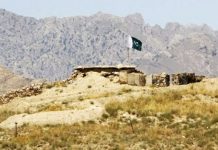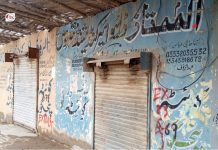In Balochistan, a human rights crisis of alarming proportions has been unfolding for over two decades. This crisis, marked by the enforced disappearances of a diverse range of individuals – including political activists, students, journalists, intellectuals, and ordinary citizens – has escalated to a critical juncture.
The state’s apparent indifference, combined with controversial and often brutal tactics against those who have disappeared, has ignited widespread unrest. The Baloch people, driven to their limits, are responding with growing desperation and diminishing tolerance for such state actions.
The Crisis of Enforced Disappearances in Balochistan
The roots of this crisis lie in the early stages of the Balochistan conflict, with a notable surge in disappearances during General Pervez Musharraf’s regime in the early 21st century. The use of enforced disappearances, initially a strategy to suppress the Baloch Independence movement, continued and intensified after Musharraf’s regime under subsequent civilian governments. The ‘kill and dump’ policy emerged as an alarming facet of the crisis. This policy involved abducting individuals without legal recourse, subjecting them to torture and inhumane treatment, and later discarding their bodies in remote areas.
In response to the surge in enforced disappearances and the use of controversial tactics against the victims, the Voice for Baloch Missing Persons (VBMP) was established by victims’ families around 2009. VBMP’s protest camp in Quetta has been ongoing for over 5250 days, demanding justice for the victims of enforced disappearance. The group’s documentation indicates over 50,000 cases of disappearances, including those of women and children, and reports of finding more than 20,000 mutilated bodies, highlighting the staggering scale of the crisis.
The enforced disappearances have profoundly impacted Baloch society, causing extensive economic, psychological, and social consequences. Families continually grappling with uncertainty and grief have seen the societal fabric severely disrupted. Despite ongoing peaceful protests and consistent calls for action, the state’s response remains limited. Moreover, recent developments, such as the killing victims of enforced disappearances in ‘fake’ encounters, have further exacerbated the situation.
Current Escalation in Protests
Recently, Balochistan has seen a significant upsurge in protests against enforced disappearances and extrajudicial killings. This increase in public unrest is not only a response to the longstanding crisis but also reflects the growing impatience and frustration among the populace, particularly in light of recent incidents that highlight the state’s “harsh tactics”.
A notable incident that contributed to this escalation was an operation by the Counter-Terrorism Department (CTD) in Turbat, resulting in the deaths of four young men, including Balach Baloch. These individuals, previously reported as missing, were killed in what has been described as a ‘fake’ encounter.
This event has mobilized the public, leading to extended sit-ins and an expanding movement against what is perceived as a systematic campaign against the Baloch people. Protests have spread to major cities throughout Balochistan, indicating a national awakening to the crisis. Protesters in Turbat also plan to extend their movement, including a long march to Quetta, aiming to unite those affected by enforced disappearances and state actions.
Additionally, Demonstrations organized by the Baloch Yakjehti Committee (BYC) and relatives of missing persons have intensified the outcry against enforced disappearances and extrajudicial killings across Balochistan, including in cities such as Quetta, Hub Chowki, Osta Muhammad, and Dera Ghazi Khan among others. Participants, encompassing various political and student organizations, have condemned what they term the ‘Baloch genocide.’ They are calling for an end to violent state actions, the immediate recovery of missing persons, and an international investigation into these issues.
In Islamabad, a significant protest camp has been established outside the National Press Club, demanding the recovery of individuals like Rashid Hussain Baloch, who was extradited to Pakistan after being detained in the United Arab Emirates, along with others who have disappeared. Participants in the Islamabad protest camp include the mother of Rashid Hussain, Saira Baloch, sister of the missing Asif and Rasheed, the mother and niece of Jahanzib Muhammad Hasni, who disappeared from Quetta, and the mother of Saeed Ahmed, a police officer who disappeared from Mastung, among others.
Internationally, the Baloch National Movement (BNM) UK chapter held a protest in London’s Trafalgar Square. This demonstration, attended by members of the Baloch community in the UK, condemned the enforced disappearances and extrajudicial killings in Balochistan. Speakers called on the international community, including the British public and government, to take notice of the atrocities and support the Baloch people’s struggle.
Recent Judicial Proceedings and Government Response
Amid escalating protests in Balochistan, the Islamabad High Court has recently taken steps to address the issue of enforced disappearances, with a particular focus on missing Baloch students. On November 22, Justice Mohsin Akhtar Kayani called upon senior government officials, including Pakistan’s interim Prime Minister and key ministers, to attend a court hearing set for November 29.
During these proceedings, Justice Kayani emphasized the serious nature of enforced disappearances and their wider impact on public trust and Country’s international reputation. He called for direct involvement and accountability from the government to address and resolve this deepening crisis.
The response from the government to these directives, however, has been characterized by evasion and a tendency to downplay the issue. Notably, the absence of Interim Prime Minister Anwar ul Haq Kakar from the November 29 court hearing, along with his previous remarks downplaying the issue and attributing them to propaganda against state institutions, demonstrated a dismissive attitude toward this grave human rights issue.
At the hearing on November 29, attended by officials like Interior Minister Sarfaraz Bugti and Human Rights Minister Khalil George, the Attorney General presented a report claiming the return of 22 out of 50 missing Baloch students. This report was met with skepticism, particularly by the families of the missing who disputed its accuracy.
One such case involved Noor Bakhsh, father of Feroz Ahmad, who contested the government’s claims about his son’s return. Feroz, allegedly taken into custody in May 2022, remains missing, directly contradicting the official report. This discrepancy raises serious concerns about the government’s statements’ accuracy and the misleading information provided to the court.
Further raising questions about the state’s seriousness in resolving the issue of enforced disappearances is the appointment of individuals like Sarfaraz Bugti, who is allegedly linked to ‘death squads’ in Balochistan, to lead committees on this issue. Such appointments have been critically viewed and are seen as indicative of the government’s indifference towards the crisis.
Genocide is the only option in Balochistan – Pakistani Minister declares
The recent judicial proceedings in Islamabad, marked by the High Court’s direct call to government officials, signify a noteworthy step in addressing the long-standing issue of enforced disappearances in Balochistan. However, the government’s response, characterized by evasion, lack of serious engagement, and controversial appointments, not only casts doubt on its commitment to resolving the crisis but also raises concerns about the judiciary’s ability to enforce its directives effectively.
The human rights situation in Balochistan has escalated into a severe crisis over decades, with enforced disappearances, the ‘kill and dump’ policy, and the increase in public protests against alleged ‘fake’ encounters bringing the situation to a critical point. These events are a stark indication of the growing despair and frustration in Balochistan, pushing the region to the brink.
This situation requires immediate and focused attention, highlighting the need for broader international scrutiny. A global perspective is essential to fully comprehend the complexities of the crisis in Balochistan and to encourage an international response that recognizes and addresses the urgent human rights challenges in the region.





























